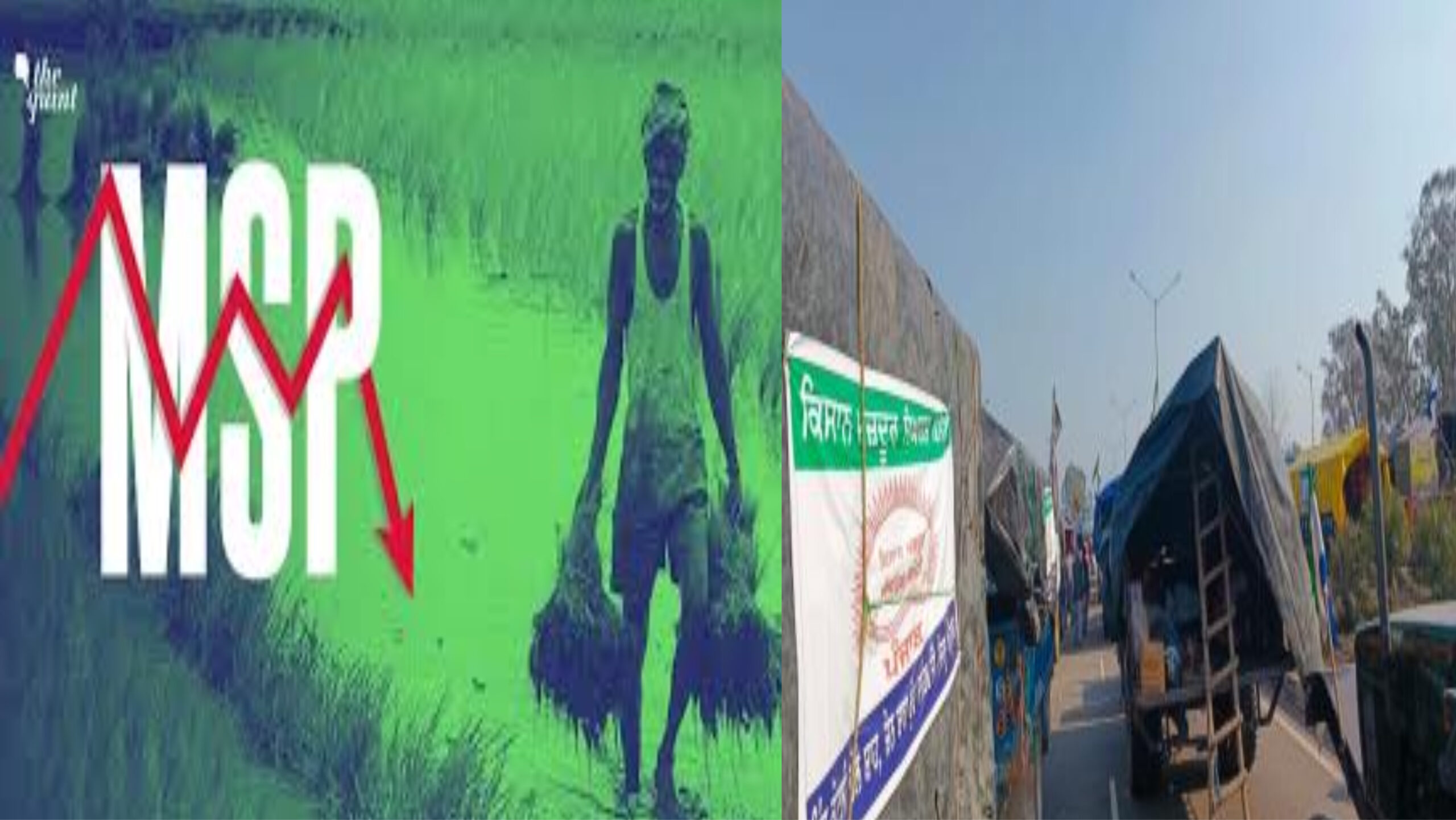In a significant development amidst ongoing discussions with the farming community, the Central Government introduced an important proposal addressing the long-standing issue of Minimum Support Price (MSP). This proposal was presented during the fourth round of negotiations held in Chandigarh on the late evening of February 18.
In an unprecedented move, a team comprising Union ministers suggested a novel approach where government entities would commit to purchasing three varieties of pulses, maize, and cotton at the MSP rate. This agreement would be legally binding and extend over a five-year period.
Union Commerce Minister Piyush Goyal, in a statement post the marathon discussion that concluded at 1:30 am, elaborated that cooperative societies endorsed by the government such as the National Cooperative Consumers’ Federation of India (NCCF) and the National Agricultural Cooperative Marketing Federation of India (NAFED) would engage in a five-year contract with the farmers. According to the proposal, these entities would purchase the farmers’ produce at MSP, with no restrictions on the quantity sold.
The dialogue was also attended by Union Agriculture Minister Arjun Munda and Minister of State for Home Affairs Nityanand Rai, signaling the importance the government placed on these negotiations.
However, the government’s proposal diverged from the farmers’ primary demand for a legislation that would ensure MSP for all 23 crops for which the Union Government annually determines the MSP. This fundamental difference in expectations led to a cautious response from the farmer representatives, who refrained from making any immediate commitments to the government’s proposal. They expressed their intention to deliberate on the proposal within their respective forums before deciding on their future course of action.
Representatives from the farming community at the meeting included Sarvan Singh Pandher, the coordinator of the Kisan Mazdoor Morcha (KMM), and Jagjit Singh Dallewal, the convener of a non-political splinter group of the Samyukta Kisan Morcha (SKM), which had played a significant role in the 2020 farmers’ protests. Post-discussion, Dallewal indicated that the proposal would be thoroughly reviewed with their forums and experts before reaching a conclusion.
Pandher also mentioned that if a satisfactory resolution was not achieved within the next two days, their planned ‘Delhi Chalo’ movement would commence from February 21, highlighting that the MSP issue was among several demands.
The backdrop of these discussions includes ongoing protests at the Punjab-Haryana borders since February 13, as part of the ‘Delhi Chalo’ march initiative. Despite previous hesitance, Gurnam Singh Chaduni, the Haryana BKU (Chaduni) chief and a prominent figure in the 2020 farm protests, indicated that his group would join the larger agitation if the discussions between Punjab farmers and the Central Government did not yield favorable outcomes.
Furthermore, the original SKM group in Punjab announced plans for extensive protests targeting BJP representatives, scheduled to take place over three days starting from February 20. These protests aim to highlight unmet commitments by the Union Government, including MSP determination based on the ‘cost plus 50%’ model and guaranteed procurement, among other issues.
In the meantime, BKU Ugrahan, one of Punjab’s most influential farmers’ organizations, staged demonstrations outside the residences of key political figures, emphasizing their demands. Additionally, the internet shutdown was extended in several districts across Haryana and Punjab, reflecting the tense atmosphere surrounding the farmer protests.
As the situation unfolds, it’s clear that the dialogue between the government and the farming community is at a critical juncture. The government’s proposal represents a step towards addressing the MSP issue, but the discrepancy between the offered solution and the farmers’ demands indicates that more discussions and compromises may be necessary to reach a mutually beneficial agreement.
The unfolding scenario underscores the complexity of agricultural reforms in India. As the government seeks to navigate the impasse with its proposal, the farmers’ steadfast demand for comprehensive MSP legislation points to broader concerns about agricultural sustainability and farmer welfare. This critical dialogue highlights the need for policies that reconcile the government’s reformative aspirations with the fundamental economic security of the farming community. The ongoing protests and discussions are not just about the immediate issue of MSP but reflect deeper systemic challenges that require thoughtful engagement and long-term solutions. As both sides continue to deliberate, the hope remains for a resolution that ensures the prosperity and security of India’s agricultural sector, integral to the nation’s economy and the livelihood of millions.

